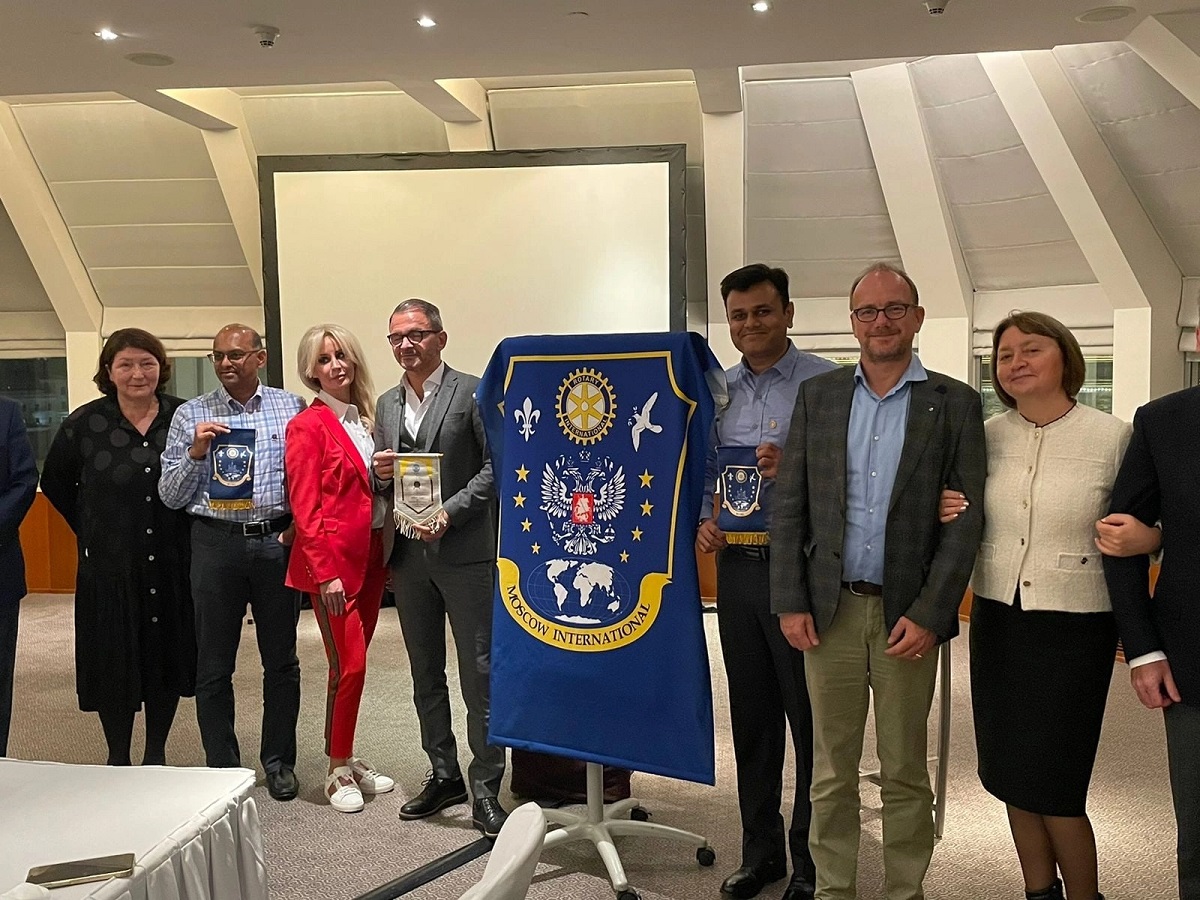How waste affects the climate and human health: a master class was held by the Associate Professor of the RUDN Institute of Ecology at Rotary International

Rotary International is an international association of business people and leading professionals. The official goal is to encourage and embody community service as the foundation of creative entrepreneurship.
“The first and most effective steps in waste management are to prevent and reduce their generation. Back in 2018, independent organizations estimated that significantly reducing the amount of waste in landfills and incinerators would cut greenhouse gas emissions by the equivalent of shutting down 21% of coal-fired power plants.
The Zero Waste approach is one of the fastest, cheapest and most effective climate protection strategies. Currently, large industrial companies maintain their image as climate-responsible, so the report caused a lively discussion and high-profile questions,” Anna Kurbatova.
RUDN University students from the scientific student society “Biospheric sustainability of the countries of the world” also attended a master class. They talked to potential employers, asked questions to future colleagues and businessmen from India, Saudi Arabia and Turkey. Among representatives from abroad:
- Derya Bandak, Branch Manager, Partner, Attorney at Law
Rödl & Partner in Dubai and Ryadh, the UAE and Saudi Arabia
- Omar Sami, Associate Partner, Legal and Tax Consultant
Rödl & Partner in Dubai and Ryadh, the UAE and Saudi Arabia
- Luermann Sebastian, Labor law
Rödl & Partner in Dubai and Ryadh, the UAE and Saudi Arabia
“Excessive and unjustified consumption is one of the biggest problems of our planet. This has led to excessive energy consumption in the production of goods that become garbage soon after consumption.
This continues to deplete non-renewable resources (eg metals, fossil fuels) and degrade renewable resources. It also leads to the formation of a huge mass of waste polluting the environment, and additionally affects the climate. The impact of waste on the climate occurs not only at the stage of energy production for sometimes unnecessary things, but also at the stage of storage or disposal of waste using inefficient technologies,” said Anna Kurbatova.
Sergey Ivanov, a scientist from St. Petersburg, became the first winner of the RUDN University International Prize for scientific achievements and merits in the field of mathematics in the amount of 5 million rubles.
Egyptian scientist Abdelraouf Masoud Ali, associate professor at the Department of Environmental Management, Institute of Environmental Engineering, has been awarded the 2024 Egyptian State Incentive Prize in Agricultural Sciences.
Inventors from 26 countries and 35 regions of Russia presented more than 500 projects at the XVIII Moscow International Salon of Inventions and Innovative Technologies “Archimedes”. 340 projects belong to Russian participants, and their foreign colleagues — 215. RUDN University initiatives were awarded two gold medals.
Sergey Ivanov, a scientist from St. Petersburg, became the first winner of the RUDN University International Prize for scientific achievements and merits in the field of mathematics in the amount of 5 million rubles.
Egyptian scientist Abdelraouf Masoud Ali, associate professor at the Department of Environmental Management, Institute of Environmental Engineering, has been awarded the 2024 Egyptian State Incentive Prize in Agricultural Sciences.
Inventors from 26 countries and 35 regions of Russia presented more than 500 projects at the XVIII Moscow International Salon of Inventions and Innovative Technologies “Archimedes”. 340 projects belong to Russian participants, and their foreign colleagues — 215. RUDN University initiatives were awarded two gold medals.